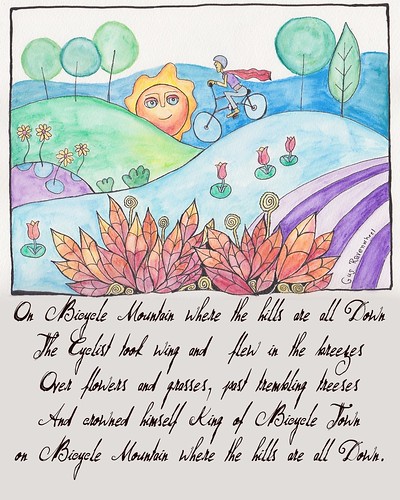From church last Sunday...
Thursday, December 25, 2014
Monday, December 22, 2014
A Prayer of Off-Guarded Joy
I saw you today, God.
As an elderly lady walked through my
Urban neighborhood
She tripped and fell
Spilling the contents of her purse.
From nowhere, a thug appeared -
Hoodie hiding his face
Prison tattoos scarring his knuckles
Pants sagging nearly to his knees
He quickly reached down and grabbed her purse and...
...and gently assisted her to her feet, returning her purse and
Tenderly wiping the dust from her clothes and
Tending to her as if she were his own grandmother
As if she were the Daughter of God
As if he were the Son of God.
Thank you God, for
Sudden moments of off-guard joy and
Gentle rebukes from
Unknown and intimidating saints.
Amen.
Friday, December 12, 2014
In This Bleak, Beautiful Mid-Winter
Some of my photos featuring the wintry, the dying, the passing away... set to music by my friend, Kate and performed by her band, Down to Earth (and friends).
Unlike many, I love this time of the year. Wintry walks beneath bare trees and across brown fields are some of my favorites. I find great beauty and comfort in the passing of seasons.
Seasons blessings...
Monday, December 1, 2014
Ring Them Bells
The artwork is a collage, made from reclaimed "Black Friday" ads. Our theme for Advent is the Alternative Narrative, and taking the themes of Buy, Get, Acquire from the commercial ads and subverting those messages to create a message of a new hope, a new season, a new Way... seemed appropriate to us.
"Ring Them Bells," by Bob Dylan, performed by some friends at Jeff St Baptist...
Happy Advent Season.
Tuesday, November 11, 2014
Lazarus and the Rich Man
There was a rich man who was dressed in purple and fine linen and lived in luxury every day. At his gate was laid a beggar named Lazarus, covered with sores and longing to eat what fell from the rich man’s table. Even the dogs came and licked his sores.
The time came when the beggar died and the angels carried him to Abraham’s side. The rich man also died and was buried. In Hades, where he was in torment, he looked up and saw Abraham far away, with Lazarus by his side. So he called to him, "Father Abraham, have pity on me and send Lazarus to dip the tip of his finger in water and cool my tongue, because I am in agony in this fire."
But Abraham replied, "Son, remember that in your lifetime you received your good things, while Lazarus received bad things, but now he is comforted here and you are in agony. And besides all this, between us and you a great chasm has been set in place, so that those who want to go from here to you cannot, nor can anyone cross over from there to us."
He answered, "Then I beg you, father, send Lazarus to my family, for I have five brothers. Let him warn them, so that they will not also come to this place of torment."
Abraham replied, "They have Moses and the Prophets; let them listen to them."
"No, father Abraham," he said, "but if someone from the dead goes to them, they will repent."
He said to him, "If they do not listen to Moses and the Prophets, they will not be convinced even if someone rises from the dead."
~Jesus
Some thoughts:
It is interesting that for many of our homeless and marginalized brothers and sisters, they are forced into a life of wandering anonymity whilst the rich are celebrated and honored, but Jesus here names and welcomes the poor man and leaves the wealthy one anonymous.
The rich man is not condemned as evil or a non-believer, it just notes that he is rich and literally outside his gate, the poor were literally suffering and dying.
The rich man appeals for Lazarus' help, after apparently ignoring Lazarus all those years.
There is no help forthcoming, because there is a "chasm" that had been set in place... one can't help wonder: Who set the chasm in place? Could it be that this is the rich man's own chasm that he had separated himself?
The rich man was worried about his presumably also-wealthy family, that they might suffer the same fate as he did.
Whatever your thoughts about the Bible, this is a great story - powerful, moving, tragic and compelling.
Wednesday, November 5, 2014
Finding Hope
Words of hope and rebellion, from Wendell Berry...
...So, friends, every day do something
that won’t compute.
Love the Lord.
Love the world.
Work for nothing.
Take all that you have and be poor.
Love someone who does not deserve it.
Denounce the government and embrace
the flag.
Hope to live in that free republic
for which it stands.
Give your approval to all you cannot understand.
Praise ignorance,
for what man has not encountered
he has not destroyed.
Ask the questions that have no answers.
Invest in the millennium.
Plant sequoias.
Say that your main crop is the forest that you did not plant,
that you will not live to harvest.
Say that the leaves are harvested
when they have rotted into the mold.
Call that profit.
Prophesy such returns...
Put your faith in the two inches of humus
that will build under the trees
every thousand years.
Listen to carrion – put your ear
close, and hear the faint chattering
of the songs that are to come.
Expect the end of the world.
Laugh.
Laughter is immeasurable.
Be joyful
though you have considered all the facts...
Go with your love to the fields.
Lie down in the shade.
Rest your head in her lap.
Swear allegiance
to what is nighest your thoughts.
As soon as the generals and the politicos
can predict the motions of your mind,
lose it. Leave it as a sign
to mark the false trail, the way
you didn’t go. Be like the fox
who makes more tracks than necessary,
some in the wrong direction.
Practice resurrection.
~excerpts from Wendell Berry's Manifesto: The Mad Farmer Liberation Front
Friday, October 24, 2014
I've Been Around the World
An Anniversary, of Sorts, or a Milestone, Perhaps...
I realized today that it was about 15 years ago that Donna and I moved from a two car to a one car family. I began biking to work, church and other >5 mile trips and biked for the first 7 years or so, then started walking in lieu of biking (which took more time, but I enjoy walking even more).
And I further realized that I've now walked the equivalent (give or take) of one lap around the globe.
Assuming walking (round trip) 5 miles to work, 5 days a week and 5 miles to church... that's about 30 miles a week. Multiply that times 50 weeks (allowing that there have been exceptions) and that times 15 years and - if my math is correct - I've walked and biked over 22,000 miles.
Or, in another way of looking at it, that is the equivalent to having walked from the northernmost point of Alaska to the southernmost tip of South America, with plenty of room to ramble around in between... it's a whole a bunch of walking.
According to one "carbon calculator" I found, that means we've saved about 43,000 pounds of CO2 emissions and, they said, "altogether you will save or get benefits worth $155,131.60" I'm not sure what that's based upon, but it sounds sorta cool.It's certainly saved some. AAA estimates that each car in a house hold costs, on the low side, $6,000/year, so that's $90,000 for 15 years.
Anyway, it's been a great 15 years of Human Powered Motion. Here's hoping for at least one more trip around the globe... To honor the event, I present a bit of HD Thoreau, on Walking...
"I have met with but one or two persons in the course of my life who understood the art of Walking, that is, of taking walks—who had a genius, so to speak, for sauntering, which word is beautifully derived "from idle people who roved about the country, in the Middle Ages, and asked charity, under pretense of going a la SainteTerre," to the Holy Land, till the children exclaimed, "There goes a Sainte-Terrer," a Saunterer, a Holy-Lander...
They who never go to the Holy Land in their walks, as they pretend, are indeed mere idlers and vagabonds; but they who do go there are saunterers in the good sense, such as I mean. Some, however, would derive the word from sans terre without land or a home, which, therefore, in the good sense, will mean, having no particular home, but equally at home everywhere. For this is the secret of successful sauntering. He who sits still in a house all the time may be the greatest vagrant of all; but the saunterer, in the good sense, is no more vagrant than the meandering river, which is all the while sedulously seeking the shortest course to the sea...
...To come down to my own experience, my companion and I, for I sometimes have a companion, take pleasure in fancying ourselves knights of a new, or rather an old, order—not Equestrians or Chevaliers, not Ritters or Riders, but Walkers, a still more ancient and honorable class, I trust. The Chivalric and heroic spirit which once belonged to the Rider seems now to reside in, or perchance to have subsided into, the Walker—not the Knight, but Walker, Errant. He is a sort of fourth estate, outside of Church and State and People...."
Sunday, October 5, 2014
Come, Dance With Me...
Every child has known God,
Not the God of names,
Not the God of don’ts,
Not the God who ever does Anything weird,
But the God who knows only four words.
And keeps repeating them, saying:
“Come Dance with Me , come dance.”
~Hafiz
Thursday, October 2, 2014
spare some change?
I saw him all crumpled
on the ground like a
temporary spirit
and I thought I knew him
like an old classmate
or a distant cousin or
maybe a neighbor
from back in the day
and I couldn't place him
but maybe, he was the
guy who used to fix
my car or
deliver the paper
I was certain he
was familiar
like
maybe my son or
my daughter, my sister or
brother and, the more I looked at him... I think maybe he was.
And I wondered if I could
if I should
spare some change.
Sunday, September 28, 2014
A Post for Marshall...
Years ago, I wrote a two part post that explained how I moved from "here" to "there" on the topic of marriage equity. I was raised and lived for the first ~30 years of my life as an extreme conservative Christian in the traditional Southern Baptist church mode. Given that, I was, of course, extremely opposed to any normalization of "the homosexual agenda..." I certainly did not intend to be unloving or ungracious towards anyone, but in hindsight, I surely was.
At any rate, I was solidly opposed to "gay marriage" - vehemently, so. I was absolutely certain that not only was the Bible and reason clearly against any sort of gay behavior, I had no room in my worldview for any Christian possibly even hinting at thinking it was possible. And yet, here I am today, fully recognizing (and repenting of) my errors in thinking and behavior from that time. In these two posts, I explained how I moved from one position to the other and, not only that, but how I did it based on Bible study, prayer and reasoning from those two alone. At that time in my life, there was no room for any other way to "prove" anything.
Here are those posts...
My Journey, Part 1
My Journey, Part 2
Conservative blogger, Marshall recently said that I left questions unanswered there. I'm putting this post up to give Marshall a chance to ask a question that he thinks I left unanswered.
He, of course, does not find my process or reasoning compelling. That is fine, I wouldn't have found it compelling before I reached this point in my life, either. Now, I could not imagine anyway to find it anything but compelling.
The point I always make with Marshall and his comrades is that, just because the argument is not compelling to them, does not mean, 1. That there is no rational argument being made or, 2. That no one else could possibly find the arguments compelling.
It would be my guess that the main reason he doesn't find my arguments compelling (other than the cultural bias against it, and cultural biases being very hard to overcome) is that he approaches the Bible differently than I do. Where he finds literal history and literal commands from God, I find interesting stories that are told in mythic or epic fashion, and NOT literal commands from God.
Maybe, if one accepts the more fundamentalist view of the bible, my reasoning is terribly faulty. However, the real world fact is that not everyone finds the fundamentalist view of the Bible to be rational, moral or, in fact, biblical. So, you can't say, "You HAVE to hold my view of these texts and, given my view, you are wrong..." That is true only if I hold your view and I do not, so I am not in any rational, moral or biblical way compelled to accept your view.
Having said that: Feel free to ask your question, Marshall.
Wednesday, September 24, 2014
Anti-Intellectualism is Stupid
Anti-Intellectualism quote of the day (in response to my question, "Do you think all experience is equal: That the mailman who walks through a poor neighborhood and the social worker who has researched and studied poverty and worked as a case manager directly with the poor are equally informed as to the causes and effects of poverty in the lives of the poor? Or do you make room for the notion that people who actually work for years in a field might possibly be better-informed on the topic?...")
Social workers are trained to give people the benefit of the doubt and in my experience do so to the point of overlooking the obvious. They tend to make excuses for people because they’re trying to help. So no, I don’t generally trust social workers’ experiences. Look at all the kids they leave with negligent parents, yet try to remove kids from homes where parents let them walk to school for a block or two in safe neighborhoods.
[Courtesy of John at the ironically named, Sifting Reality blog, although the attitude is not unique to him, so I'm talking about the comment, not the person...]
There is such an arrogance and wholly uninformed presumption and ignorance in that statement, that one hardly knows how to respond. Why are people like this? Have they been burned by, in this case, what the feel is a bad social worker so they project that hurt feeling out on to all social workers? And does this person feel the same way about other professionals? Water quality experts? Car mechanics? Psychologists? Where does this ignorant hostility end?
Lord help us.
Thursday, August 28, 2014
An Answer for Bubba in return for a Question for Bubba
A question from Bubba:
IF it's not correct... IF you think that your opinions about what God wants are objective facts that are provable, demonstrable, please provide the hard data to support that claim.
Thursday, August 21, 2014
Research Confirms: Peace Works
Impressive research, worth citing...
"Between 1900 and 2006, campaigns of nonviolent resistance against authoritarian regimes were twice as likely to succeed as violent movements. Nonviolent resistance also increased the chances that the overthrow of a dictatorship would lead to peace and democratic rule. This was true even in highly authoritarian and repressive countries, where one might expect nonviolent resistance to fail. Contrary to conventional wisdom, no social, economic, or political structures have systematically prevented nonviolent campaigns from emerging or succeeding.
From strikes and protests to sit-ins and boycotts, civil resistance remains the best strategy for social and political change in the face of oppression. Movements that opt for violence often unleash terrible destruction and bloodshed, in both the short and the long term, usually without realizing the goals they set out to achieve. Even though tumult and fear persist today from Cairo to Kiev, there are still many reasons to be cautiously optimistic about the promise of civil resistance in the years to come.
In the United States and Europe, policymakers often seem at a loss when confronted with the questions of whether to support civilians resisting authoritarian regimes using nonviolent protest and, if so, what form that support should take. Liberal interventionists cited a “responsibility to protect” civilians to justify NATO’s intervention in Libya and have also invoked that argument in advocating for similar action in Syria. But the promise of civil resistance suggests an alternative: a “responsibility to assist” nonviolent activists and civic groups well before confrontations between civilians and authoritarian regimes devolve into violent conflicts.
Civil resistance does not succeed because it melts the hearts of dictators and secret police. It succeeds because it is more likely than armed struggle to attract a larger and more diverse base of participants and impose unsustainable costs on a regime. No single civil resistance campaign is the same, but the ones that work all have three things in common: they enjoy mass participation, they produce regime defections, and they employ flexible tactics. Historically, the larger and more diverse the campaign, the more likely it was to succeed."
Read more...
http://www.foreignaffairs.com/articles/141540/erica-chenoweth-and-maria-j-stephan/drop-your-weapons
Saturday, August 16, 2014
The Great Flood
Fiddle music rising over the hills
children laughing
dogs barking
friends playing and singing...
sorrows divided and
happiness multiplied
like loaves and bread
let the doubters haggle
and the believers settle down
into a chaotic mellowness
joy flooding the evening
raising us all to a blessed higher ground.
Saturday, August 9, 2014
Safe Haven
Children seeking shelter and safety should never be considered or treated like criminals. We all need to be safe havens for children, especially those in dangerous places and situations.
Do we even need to have that discussion?
Thursday, July 31, 2014
Floating...
This summer, during Ordinary Time, we, at my church, have been thinking on Sabbath. Here is my Sabbath reflection from last Sunday, which was accompanied by this video.
To float is to
rest and to
trust
in forces, unseen
as a leaf drifting
down a wild mountain stream
or a crow circling
on a rising wind;
as an ember rising
from a campfire
as a seed dancing
on a delightful breeze
or a reflection bouncing
on a still lake's surface
and I sometimes find
my sabbath rest
in floating
where the day may lead...
Wednesday, July 16, 2014
Saturday, July 5, 2014
Friday, June 13, 2014
Widow Skimmer
She is a Grandeur
a Widow bathed in scintillation
and softly clothed in coruscation
a Glimmer and a Wink and a Glow
And when she flies
oh,
how she flies
with finesse
with grace
with elegance and lace
and the Joy she shares
as she tarries there
none other can ever know.
Thursday, May 22, 2014
Over the years, I've heard many discuss the rational problems with the evangelical version of salvation and eternal punishment. One large complaint about their approach has to do with justice. Briefly, the approach I'm speaking of is this:
You must accept Jesus as Lord, confess your sins and embrace a pretty specific understanding of ideas about God, Jesus, salvation, forgiveness and a vague list of other ideals/opinions and if you don't, you will be condemned to an eternity in suffering and torment.
For some, it's not enough to even generally embrace the ideas of an eternal Creator God, God's son Jesus as a man who literally lived on earth, died and rose from the dead, the need of salvation by Grace and several other ideas, but you have to hold a specific understanding of these ideas. If you deviate too far from one specific understanding of these ideas, then you may not be saved. Even if you disagree with the "right" opinion in good faith and it turns out you were mistaken, then you might not be saved, just for simple flawed understanding.
The problem with this is the problem of God's nature as we understand it. Christians and many others accept the notion that God is perfectly loving and perfectly just and fair. But this other version of God and salvation is an affront to justice. How is it fair to punish someone who believed the right general ideas, but misunderstood some of the finer points? How is it reasonable, fair and proportionate to not only punish this person, but to do so for an eternity of suffering in hell for simple misunderstanding?
Or what of the person who heard Christians speaking of God in ways such as this and rejected that version of God as being unjust and irrational? Those people never "accepted Jesus," never confessed their sins, maybe never believed that Jesus was an actual historical character. And some of those people will live lives of relative decency. They'll never once kill, rape, abuse or rob anyone. They will, of course, commit thousands of "sins..." they'll be jealous, gossip, tell some lies, maybe cut some corners on paying their taxes, pollute, maybe have extramarital sex... they will absolutely be imperfect. Humans ARE imperfect, that is our nature, the way we've been made, if you look at it that way.
And so, for this person, they will be punished for a lifetime of these sins which don't rise to the level of human crimes. And, to be fair, they'll also do good deeds - help the poor, feed the hungry, give to good causes, help a neighbor, be good parents and good children to their parents. They'll be just regular, imperfect schmucks, with some good and some bad.
Now, if a nation were to say, "Juan Smith, we know that you've committed 10,000 of these smaller 'sins.' You don't deny it, they clearly happened. Therefore, the nation of Blarbistan is going to punish you to a lifetime in a prison..."
If a nation did that, there would be an outcry. "That is unjust!" people would complain, and rightly so. Yes, sure, these people committed those sins and we may agree that they were bad things to do. But, the punishment is disproportionate to the crime, and that makes the punishment unjust, unfair and unreasonable, as well as those doling out the punishment.
Does anyone dispute this?
Then, if we agree that this would be unjust for a nation to do it for a single lifetime, what of a god who would punish someone for an eternity... and NOT just in a human prison, but in a place of "eternal torment, where there is weeping and gnashing of teeth..."? And where there is no chance of pardon or parole... HOW is that a Just punishment? How is that not whimsical, irrational and horribly unjust?
The response you hear all the time... "God's ways are not our ways..."
As someone recently put it at another blog, that God punishes...
...based on HIS notion of love and justice, not ours. He doesn’t think like us and His way is not our way.
So then, in that theory, God isn’t talking about justice, as commonly understood in the English language, meaning “agreeing with what is considered morally right or good; treating people in a way that is considered morally right; reasonable or proper…” but it means this Other Thing, let’s call it “Blarb.”
So, when people like this picture God and God’s justice, they do not appear to be talking about the English language word, Justice, at all. They appear to be speaking about Blarb. And Blarb‘s definition is, what, exactly?
If I were to give a shot at what they seem to be describing, I’d say it’s something like this:
Blarb: adj. according to some in the Christian tradition, this is “agreeing with a rather whimsical and unjust notion of adhering perfectly to some subset of God’s rules, rules which we can not know or understand perfectly, and yet, being held accountable to them as if we could understand them perfectly. This may include a wildly out-of-proportion-to-the-”crime” set of punishments that are neither just, reasonable, consistent or fair, but are “blarb-ish.”
But that’s just my guess based on what they have said (and, to be clear, what I would have agreed with at one time).
If anyone is interested who believes in this Other notion of "god's justice," which is different than the word Justice in the English language, how would you define this Other Idea, the one that isn’t justice as we understand it in the English language, but is “blarb…”?
Wednesday, May 21, 2014
Who is repeating a falsehood?
Okay, just as I did for Bubba, I'm posting a new post just for the benefit of another of my detractors, Craig. He says that I have lied, that I have demonstrated myself as a liar, that there is no other conclusion he can reach.
Of course, as they often do, he did this on a post where the subject was not "Is Dan a Liar," and thus, made an off topic, ad hom attack, rather than dealing with my points on the post.
So, rather than chasing that off topic ad hom false report at that place, I'm giving Craig all the room he needs to make his case and where I can respond to him, hopefully clearing up his clear misunderstanding.
It is, of course, a clear misunderstanding, because while I am always capable of making a mistake, I have never deliberately lied in this here blogosphere. So, Brother Craig, here is your chance: Make your case, show where I have stated a falsehood.
If I DID do so, it was, of course, an accident and you will be doing me a favor and I can apologize and clarify my actual intent.
If not, then you can retract your claim and apologize for your mistake.
The ball is in your court.
Wednesday, May 7, 2014
To be heretical, or not to be...
I'm creating a post for the sake of Bubba, who oftentimes on other websites, on other topics, he'll go off on a "Dan's a heretic" tangent. Then gets all huffy if I don't want to discuss the off topic ad hom attack on someone else's blog, on some other topic.
NOTE: This is a conversation chance for JUST Bubba and Dan, to see where we might find agreement and disagreement. I'll ask that everyone else (should anyone else want to participate) just hold your horses and save your comments for another day. Or email me, if you must. This one's just for Bubba and Dan. Thanks.
So, Bubba, here's your chance: Raise your questions here and now if you have some real concerns about my faith journey striving by grace to walk in the steps of Jesus. We can take it slowly and deliberately and deal with any questions you may have.
The ball is in your court.
~Dan
Sunday, April 20, 2014
Blessed Easter
"Good is stronger than evil;
love is stronger than hate;
light is stronger than darkness;
life is stronger than death.
Victory is ours, through God, who loves us."
~Desmond Tutu
Friday, April 18, 2014
Black Friday
On this black Friday
when we remember the sacrifice paid by Jesus
let us not forget that
black Fridays still continue.
Let us remember those who have been attacked
assaulted
tortured
"disappeared"
abused
raped
and otherwise oppressed
And redouble our efforts to say
in the name of Jesus
- the savior of the oppressed and downtrodden -
"No more!"
and work to make it so.
Monday, April 7, 2014
What Would That Look Like?
Jesus never defined the meaning of what he said in this passage (or when John the Baptist's followers asked Jesus if he was "the One" and Jesus replied, "Tell John, the poor have the gospel preached to them..." or other similar passages).
We'd have fewer "crystal cathedrals" and more simple, Open Door meeting houses.
I would also point to the example of Jesus and the early church for hints as to what it should look and feel like.
and to fellowship, to the breaking of bread and to prayer.
held everything in common, and
they began selling their property and possessions and distributing the proceeds to everyone, as anyone had need.
breaking bread from house to house,
sharing their food with glad and humble hearts,
No one claimed that any of their possessions was their own,
but they shared everything they had.
that there were no needy persons ! among them.
and put it at the apostles’ feet,
and it was distributed to anyone who had need.
Wednesday, April 2, 2014
Beware Arrogance
Arrogant words of the day, from Stan Smith's blog's post today. He was speaking of how he could not possibly be wrong on his position about homosexuality or, what the devastating consequences would be IF he was possibly wrong and he said...
"If it is not [ie, what if his understanding is not true], then we have genuine reason to question Scripture, Church history, the abilities of the Holy Spirit to lead His own into the truth, and, consequently, Christianity itself. If it is not true, then the massive failures on God's part are staggering. He failed when He called it an "abomination" in the Old Testament and He failed when Paul was inspired by God to write that no one who practices such things have a part in the kingdom and He failed by sending His Holy Spirit who was to lead His people into all truth."
Now, my leaning is to want to just leave the speaker anonymous, because it's about the idea, not who said it. But when I've done that in the past, I've been criticized for possibly taking something out of context, so, the above is from today's comment section at the birdsoftheair.blogspot.com post. Feel free to read if you so choose.
But look at what he's saying: If people like this are NOT correct in their understanding, then, to them, that indicates a failure on God's part?! What sort of arrogance is that?
Can you imagine the harrumphing and charges of blasphemy if a supposed liberal were to say something like that?
Friends, we can ALL be mistaken. We can ALL be wrong. It is part of the human condition, our collective ability to be mistaken, to be fooled by tradition or by our desires or by our culture. It happens, there's no shame in admitting our human ability to be mistaken. But to equate the slightest chance that WE could be wrong to a "massive failure" on God's part??
And if we, in our glorious human wisdom are mistaken, then we have reason to question everything, even Christianity? What sort of statement is that for a Christian to make?
Wow.
Thank God for grace and forgiveness and long-suffering patience.
======
Note: To be clear, this post is not about homosexuality, it is about arrogance and presuming that for one to be mistaken can only happen if God has failed. If you have comments on that topic, I'll entertain comments with opinions about that. But I'm not discussing homosexuality.
Thursday, March 13, 2014
Friday, February 28, 2014
Tuesday, February 11, 2014
Pray and Dance and Heal and Comfort
What we did at church last Sunday: Sending out prayers and love and comfort to our dear friends who have not been able to attend church lately due to illness and healing and other struggles. Prayer through dancing.
Sometimes, prayer is not a pretty thing.
Tuesday, February 4, 2014
It Gets Better
http://www.youtube.com/watch?v=4BjpS2YdR0s
Friday, January 31, 2014
Eclectia
“The beginning of love is the will to let those we love be perfectly themselves, the resolution not to twist them to fit our own image. If in loving them we do not love what they are, but only their potential likeness to ourselves, then we do not love them: we only love the reflection of ourselves we find in them”
~Thomas Merton
(Happy Birthday to Saint Thomas of Kentucky)
Thursday, January 23, 2014
Prayer Dance
When I see the sun
and feel her warm embrace
I am always grateful
But when the days have been cool
and the winter, long and gray,
on those days when the sun
breaks through and embraces me warmly,
On those days,
I dance like a whale breaching,
for joy like no other joy.
Friday, January 10, 2014
A faded and imperfect reflection
For now, we see as through a glass, darkly
but on our dark days, that seems such a small comfort
We hope for that which is not a dim reflection
but the original, whole, perfect, known fully,
even as we are fully known
In the end, we find no options but waiting, powerless.
But at least in this
this darkness,
this uncertainty
this dim reflection
at least in this
we try to take comfort that
we do not have to wait alone.
Wednesday, January 1, 2014
Greetings, New Year
One resolution for this blog, only one:
Be it resolved to end "debate."
I will almost certainly continue to offer an occasional opinion here, some of my ponderings and considerations and meditations on important and unimportant matters alike. But, I have simply lost the appetite for the back and forth sniping that happens to often in this ol' world.
If I offer an opinion, that is what it is. Take it for what it's worth. If you want to offer an opinion, please do so, AS an opinion, kindly offered for what it's worth.
If you have a different opinion than mine, you are still welcome to offer it, but I insist on respect and kindness and suggestions, not insistence. That is, if you disagree on matters of opinion, feel free to offer an alternative opinion, but begin it with, "...Interesting point, but have you considered..." or, "I see... but what about..."
Unless it is a verifiable fact, do not bother with posts that begin like, "You're WRONG. Here's the FACTS..."
That is, if I offer an opinion about Ben Franklin's birthday or how many years MASH was on TV or the molecular difference between blue birds and blue jays, at a species level (not likely to happen, since that is probably gibberish...), you can correct facts.
But if it's an opinion about your interpretation of a biblical passage or your hunch about what God wants or the number of angels that can dance on the head of a pin or ANY opinion, do not proffer declarative statements when you are stating your opinion. You are always welcome to say, "It seems to me..." or "My opinion on that question is..." but not, "GOD SAYS you are wrong..."
If you are unclear as if your post that you'd like to make is opinion rather than fact, feel free to email me or consult a dictionary and ask.
I just don't think back and forth bickering about debatable (even IMPORTANT debatable) matters helps more than it harms. This is my opinion, to be sure, and I'm going to try to write and comment this year keeping that opinion in mind. If you'd like to post here, I'd kindly ask the same from you.
Have a wonderful new year.
May your feet walk (or "wheelchair roll...") many pleasant and thought-provoking miles and may we all live together in peace.
~Dan



























